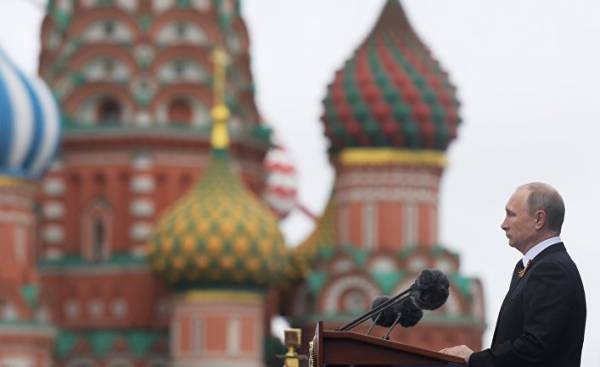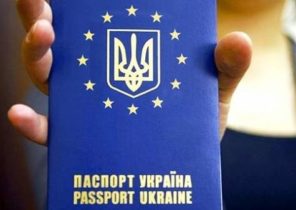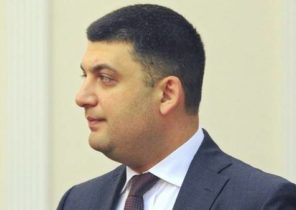
War today is not like it was before. Perhaps this is nowhere more evident than in the ongoing struggle between Russia and the West for spheres of influence, which, apparently, is now conducted in secret as often as in the open. At the dawn of the digital era conflicts between the great powers is no longer restricted to battlefields in and out in cyberspace, the Kremlin accepts it with open arms, improving their abilities of conducting a hybrid war.
Perhaps in our days the term “hybrid war” in fashion, but it is used for centuries. Anyway, it was characteristic of the Napoleonic wars, the revolutions in North and South America and the cold war, which was manifested in the form of a combination of conventional and unconventional tactics.
But recently, on the background of the development of technologies and mass communications, the concept has been rethought, and the hybrid nature of war has changed due to the introduction of elements such as trolls, bots and “hacktivists”. Regarding the definition of this term the debate today, however, in hybrid warfare (at least in this analysis) in addition to the traditional forces, paramilitary, punitive economic measures, political manipulation and propaganda and dissemination of disinformation can be employed in any amount and tools that exist in cyberspace. And since the costs of conventional conflict, increased increased the value of hybrid war as a tool in international relations.
To incite the West against itself
The initiator of this movement is Russia. After Russia recovered from the collapse of the Soviet Union and in the middle of 2000-ies was revived as a regional power, it is widely used hybrid warfare as a major element in its national security strategy, especially in relations with the West. Russia no longer has superiority in conventional weapons, necessary for the psychological confrontation to be in a more advantageous position than the North Atlantic Treaty Organization (NATO), and to regain the territory lost as a result of the collapse of the socialist camp. So she has to resort to other means to the maximum extent to maximize their advantages and minimize their disadvantages and vulnerabilities.
This strategy is clearly demonstrated in Ukraine, where Russia relies on tactics of hybrid war in a war-torn East of the country. There the Kremlin has used “little green men” (the forces that some say are Russian troops, although Moscow claimed that it organized local self-defense units), and used a series of cyber attacks and propaganda campaign against the Ukrainian authorities. But this Russia is not limited. She began to carry out similar operations against the Western allies of Ukraine (among them — intervention in the U.S. presidential election) and the West-oriented countries located near Russia’s borders.
The Russian government even hinted about its intention to carry out these attacks. In March 2014, a few days before Russia annexed Crimea, the chief adviser of the Kremlin, Vladislav Surkov, published under the pseudonym Natan Dubovitsky story-anti-utopia, which described a future war. He writes: “It was the first non-linear war. In the primitive wars of the nineteenth and twentieth centuries fought usually two sides. Two of the nation. Two temporary Union. Now faced four coalition. And isn’t that two in two. Or three against one. No. All vs all”.
Power is relative
Although the method and degree of activity of Russia’s use of hybrid wars have changed over the years, her motives remain the same. The geographical position of the country on its Western flank has long been vulnerable. After all, the major European powers Russia is separated by a vast Central European plain, and other physical barriers between them slightly. In the end, the frontier, caught between them, are traditionally the areas that are the subject of ongoing rivalry and conflict.
So historically, the close location and the mutual vulnerability of Russia and Europe became the reason of political maneuvering and military intervention in both directions. From Napoleon’s March on Moscow in the XIX century to the Nazi invasion of the Soviet Union and the subsequent “promotion” of the USSR in Germany during the cold war, Russia and Europe competed, trying to create their spheres of influence. The emergence on the international stage of the United States and its Association with Western Europe against Russia only heightened the confrontation. Although the end of the cold war, the immediate threat of a military conflict between Russia and the West disappeared, their rivalry has not stopped. In fact, termination was not even a question: the expansion of the EU and NATO over the past decade, only remind Russia about the threat, which could be quite real and which looms on the doorstep.
At the end of 2000-ies Russia has started to partially recover its former status, partly thanks to the consolidation of power in the hands of Russian President Vladimir Putin to an economic boom caused by high oil prices and the fact that the United States was engaged in the Middle East. Thanks to its triumphant return, Russia received the opportunity to counteract the fact that, in her opinion, was the encroachment of the West on the periphery. But her success was short-lived: in Ukraine there was an uprising of the Euromaidan and Russia once again tried to protect their interests. The West imposed sanctions against it and began to increase its military presence (in Europe). Since then, tensions between Russia and the West has increased, and Moscow in an attempt to gain an advantage and assert its dominance the start of a hybrid war.
And that is how Russia intends to use this tactic as a means of enhancing their own power and influence compared with the power and influence of the West. Moscow hopes to weaken and bring down your opponent, destabilizing Western governments, provoking conflicts between European States, weakening transatlantic solidarity and discouraging integration with the West.
All these efforts of Russia aimed at solving its three most important strategic objectives. The first is to protect their centers of power in Moscow and St. Petersburg. Second, the international, the task of Russia is to prevent foreign influence on the country, its borders, thus preparing conditions for the solution of the third problem. That is, the extension of the sphere of influence of the Kremlin to the key and important tactical points, such as the formidable mountain ranges or open sea. Given that the open space between Russia and Europe such tactically important points a bit to the permanent opposition between Moscow and the West on the European continent is not visible the end and edge. And since Russia is no longer able to demonstrate its global power and influence, which she claimed in the Soviet era, she often will resort to hybrid war as the best way to compensate for their weakness and undermine the power of your enemies.







